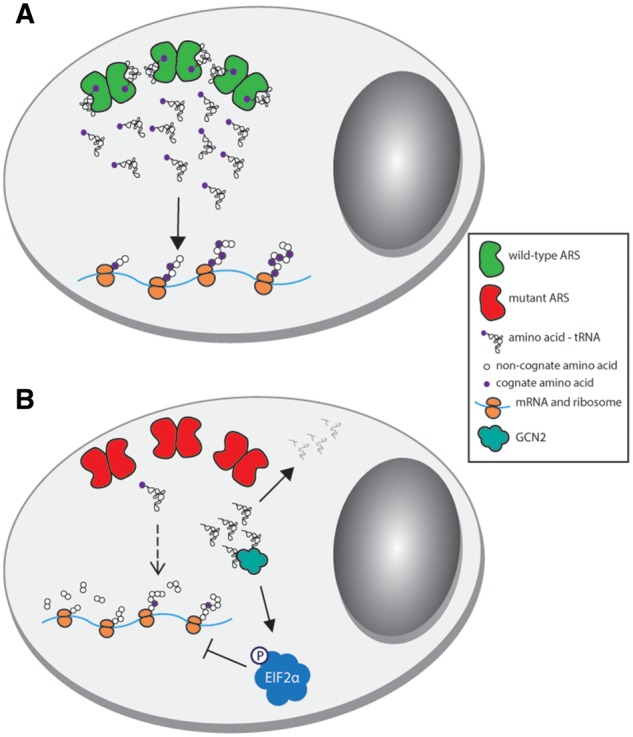Figure 1.

Potential mechanisms of ARS-related recessive disease. (A) Two wild-type ARS alleles supply cells with the requisite charged tRNA for protein translation. (B) Two loss-of-function ARS alleles severely reduce the amount of charged tRNA available for translation, which impairs protein production. Uncharged tRNA is either degraded or binds to GCN2, which phosphorylates eIF2α and inhibits global translation. In both panels, dimeric enzymes functioning in the cytoplasm are shown for simplicity; however, please note that some ARS enzymes act as monomers and that some effects apply to mitochondrial translation.
